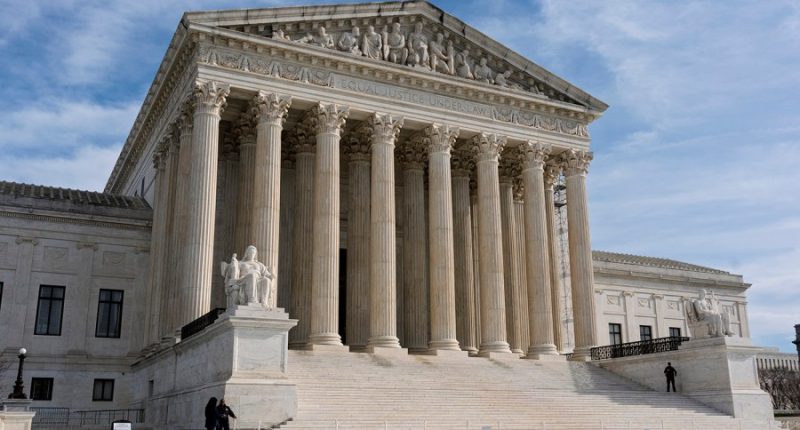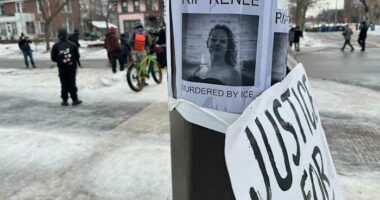Share this @internewscast.com

The Supreme Court on Friday turned away the Republican National Committee’s (RNC) bid to block Pennsylvania voters’ in-person, do-over option when they return a defective mail ballot.
The announcement was intended for Monday morning, but the court mistakenly released it early due to what a court spokesperson called an “apparent software malfunction.”
The order leaves in place a 4-3 ruling from Pennsylvania’s top court that voters can still cast a vote at their polling place on Election Day if their mail-in ballot was rejected for technical reasons, despite a state law saying such votes “shall not be counted” if the mail-in ballot was timely received. The additional option impacts thousands of voters each election cycle.
The legal battle gained attention just ahead of the 2024 election, when President Trump narrowly beat former Vice President Kamala Harris in the key swing state and went on to retake the White House. Just before the election, the Supreme Court declined the RNC’s request to intervene on an emergency basis.
Now returning to the high court on its normal docket, the RNC urged the Supreme Court to use its case as a vehicle to more broadly restrict state courts’ power over elections.
Two years ago, the high court declined to endorse the maximalist version of the “independent state legislature” theory, which would give state legislatures near-total control over setting federal election rules by preventing state courts from restraining their actions. However, the justices in that decision warned that courts may not “arrogate to themselves the power vested in state legislatures.”
The justices have yet to adopt a specific test to measure when a court crosses that constitutional line, and the RNC cast its petition as a prime opportunity to do so.
“Failure to correct the Pennsylvania Supreme Court’s indefensible distortion of the General Assembly’s laws would effectively do just that by sending a strong message that judicial review under the Elections and Electors Clauses is illusory. The result would directly contravene the Constitution,” the RNC’s attorneys at Jones Day wrote in the petition.
The justices’ refusal to take up the case comes months after the justices turned away a petition arising from Montana asking them to take up similar issues.
The Pennsylvania case arose after Faith Genser and Frank Matis attempted to vote in the state’s 2024 Democratic primary.
Initially, the duo planned to vote by mail. But they mistakenly returned “naked” ballots, meaning they didn’t include a required secrecy envelope.
With their votes invalid, Genser and Matis went to their polling place on the day of the primary election to cast provisional ballots. They sued after the Butler County elections board refused to count those ballots.
The RNC’s petition was joined by the Republican Party of Pennsylvania and the Butler County Board of Elections.










